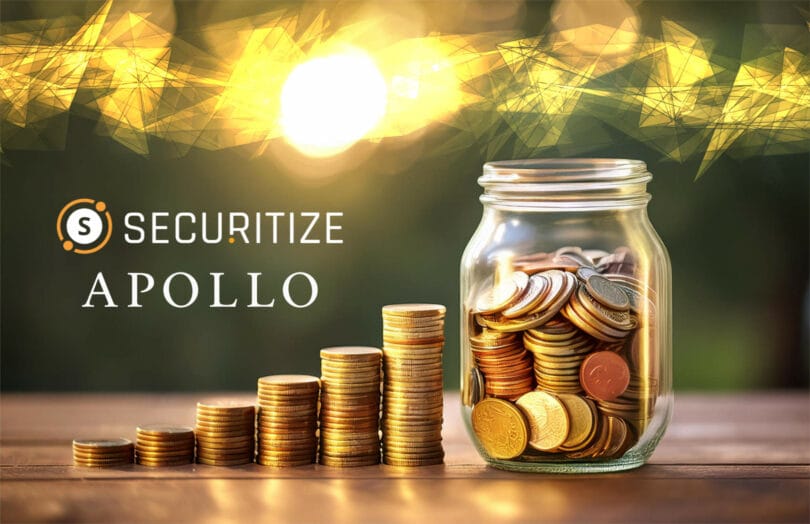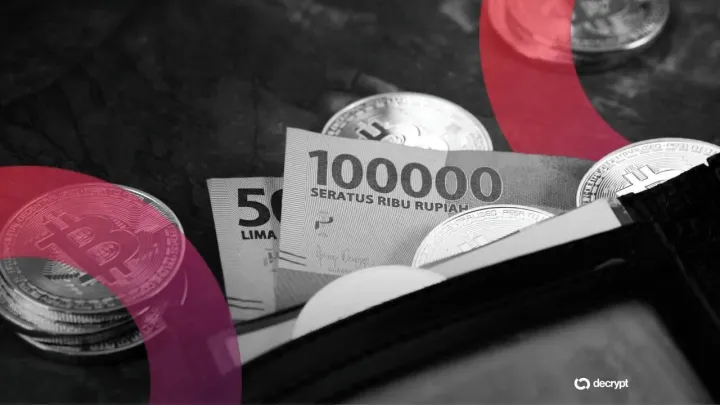Apollo’s Credit Fund Tokenized on Solana DeFi: Expanding Real-World Assets (RWA) in Crypto

In January 2025, Apollo Global Management, one of the world’s largest asset managers, in partnership with digital securities platform Securitize, launched a tokenized feeder fund representing Apollo’s $1.3 billion Diversified Credit Fund. Now, as of May 2025, that tokenized credit fund – known by the ticker ACRED – is making its debut in the Solana decentralized finance (DeFi) ecosystem. This development is a significant milestone in the growing trend of real-world asset (RWA) tokenization, where traditional financial assets like credit funds, bonds, or real estate are brought onto blockchain rails. Apollo’s initiative not only provides a new way for qualified investors to access private credit via tokens, but it also demonstrates how on-chain finance can integrate with off-chain assets in a meaningful way. For beginners, this topic may sound complex, but the core idea is straightforward: A private credit fund is an investment fund that lends money to companies (corporate loans, asset-backed loans, etc.) and earns interest. Normally, only large or accredited investors can invest in such funds, and it’s a relatively illiquid investment (money is locked up for long periods). By tokenizing the fund, Apollo and Securitize have created digital tokens that represent shares in the fund. These tokens can potentially be traded more easily, and now – in a first – they can be used within Solana’s fast, low-cost DeFi protocols. This article will summarize Apollo’s tokenization project, explain what it means for RWA integration into DeFi, discuss why Solana’s blockchain was chosen for this expansion, and explore the implications for traditional finance (TradFi) and broader institutional adoption of crypto.
Apollo’s Tokenization Initiative: From ACRED to Solana DeFi
Apollo’s tokenized fund, ACRED, stands for Apollo Diversified Credit Securitize Fund – a feeder fund giving investors exposure to Apollo’s flagship credit strategy. Launched in early 2025 through Securitize’s platform, ACRED was issued under a regulatory-compliant framework (meaning investors had to go through KYC/AML checks and meet accreditation requirements to purchase it). Initially, the ACRED tokens were made available on multiple blockchains at once. In fact, Apollo and Securitize utilized the Wormhole interoperability protocol to deploy ACRED across six networks simultaneously: including Ethereum, Polygon, Avalanche, Aptos, Ink, and Solana. The use of Wormhole means the token can exist on different chains as “wrapped” versions, enhancing accessibility and liquidity across ecosystems. However, simply launching a token on various chains doesn’t automatically make it useful in DeFi. That’s where the recent development on Solana comes in. In May 2025, a Solana-based DeFi team, Kamino Finance, announced plans to introduce ACRED into Solana’s lending and liquidity markets. The goal is to make ACRED the first-ever tokenized private credit fund that can be used as collateral for borrowing and yield strategies on a blockchain. Concretely, holders of the ACRED token will be able to deposit it into Kamino’s platform and use it within a money market on Solana – for example, borrowing stablecoins like USDC against their ACRED, or participating in a leveraged yield strategy known as “looping.” In Kamino’s proposed setup, users could deposit ACRED, borrow stablecoin, then buy more ACRED with that and repeat, thereby increasing their exposure/yield (this is similar to how DeFi users loop stablecoins for higher interest, but here it’s done with a real-world asset token). To ensure this integration is safe, Kamino and another partner, Steakhouse Financial (a DeFi risk advisory firm), were overseeing audits and risk management for ACRED’s DeFi usage. At the time of the announcement, ACRED’s activation on Solana was pending a security audit. The excitement around this news highlights a broader trend: crypto markets are eager to incorporate real-world assets because they often produce more stable yields and can attract more institutional money into DeFi.
RWA Tokenization Meets DeFi: Why This Matters
The arrival of Apollo’s tokenized credit fund on Solana is part of a larger expansion of RWA tokenization in DeFi. Real-world asset tokenization means taking something from traditional finance – be it a fund, a bond, an invoice, or real estate – and creating a blockchain token that represents ownership of that asset. This promises several benefits:
Greater Accessibility: Investments that were once limited to certain investors or regions can become more globally accessible (though still subject to regulations). For instance, while ACRED is limited to accredited investors currently (with a minimum investment of $50k), the concept points toward a future where even smaller investors might gain exposure to asset classes like private credit through on-chain vehicles, if regulations evolve.
Improved Liquidity: Traditional private funds typically lock up capital for years. A token, however, could be traded on secondary markets or used as collateral, giving investors flexibility to exit or borrow against their holdings. By bringing ACRED to Solana’s liquidity pools, Apollo is testing whether such traditionally illiquid assets can gain liquidity in a DeFi context.
24/7 Market and Efficiency: Blockchains run 24/7 with automated smart contracts. Tokenized assets can, in theory, settle trades instantly and operate beyond the 9-5 market hours, potentially increasing the efficiency of financial markets. Moreover, smart contracts can automate interest payments, redemptions at NAV, etc.
Programmability and Composability: Perhaps the most innovative aspect is that once an asset is on-chain, it can integrate with the Lego-like composability of DeFi. As Reid Simon, head of DeFi at Securitize, noted: “The value of tokenization really comes into play when these assets are integrated into DeFi, and new products and strategies are developed around them.” In practice, this means developers can build protocols that automatically allocate tokenized RWAs into yield strategies, or bundle them with crypto assets, etc. We are starting to see this with ACRED and it’s likely the first of many such experiments.
For the DeFi ecosystem, having RWAs like Apollo’s fund could introduce more stable yield sources. Many crypto-native yields are transient or highly volatile. In contrast, a private credit fund generates yield from interest on loans in the real economy, which might be steadier. If that yield can be brought to DeFi and shared with token holders, it could attract capital that is looking for reliable returns. It also diversifies DeFi’s risk: instead of purely crypto trading or lending risk, there is now exposure to corporate credit risk, which might not be perfectly correlated with crypto markets. However, it’s important to note that access to ACRED remains restricted. Only qualifying investors through Securitize can directly get the token. So while the token exists on Solana, the broader public can’t simply buy it permissionlessly on a DEX (if someone tried to sell their ACRED, the buyer would presumably need to pass KYC/eligibility via Securitize). In this initial phase, RWA tokenization is moving in a walled-garden within DeFi – integrating with DeFi protocols technically, but still respecting off-chain investor regulations. Over time, these walls might lower if securities laws adapt or if tokens represent slices of funds that can be offered to retail under certain exemptions.
Why Use Solana? Fast, Scalable Deployment of RWAs
Apollo’s choice to expand ACRED onto Solana is telling of Solana’s capabilities. Solana is a high-performance Layer-1 blockchain known for its fast transaction throughput (thousands per second) and very low costs (fractions of a cent in fees). These properties are advantageous for deploying RWA tokens for a few reasons:
High Throughput and Low Latency: If you’re going to have a token that potentially sees a lot of on-chain action, Solana’s network can handle large volumes easily without slowing down. In the first week of ACRED’s Solana pilot, there was over $1 billion in weekly trading volume and about $100 million in deposits across its incentivized pools, indicating significant activity.
Cost Efficiency: Because fees are so low, complex strategies like Kamino’s auto-looping can run with minimal cost. A user can perform multiple deposit/borrow loops or move in and out of positions without worrying about high gas fees eating into their yields – a stark contrast to, say, Ethereum mainnet where such multi-step strategies could be prohibitively expensive for small players.
Scalability for Growth: Solana’s DeFi ecosystem, while smaller than Ethereum’s, has been growing rapidly and can scale. Solana’s architecture is ready to handle an influx of institutional-sized assets.
Additionally, Solana offers a unique developer ecosystem that has focused on on-chain order books and high-speed finance. This could be appealing for institutions like Apollo as Solana can facilitate things like instant loan liquidations or real-time NAV pricing using oracles, all on-chain. In Apollo’s case, they partnered with Solana-native teams (Kamino, and using Solana’s Wormhole bridge for multi-chain) which suggests they found the tooling and community on Solana welcoming for this RWA experiment. It’s worth noting that Apollo’s tokenization is blockchain-agnostic in principle. So why highlight Solana? One reason may be that Solana’s DeFi community has been proactive in integrating ACRED quickly. Another reason: Solana’s momentum in 2024-2025 has drawn interest from institutions. With new tech improvements and a growing user base, Solana has reestablished itself as a top choice for Web3 projects. Apollo likely saw Solana as a chain where a token could actually be used in DeFi meaningfully, as opposed to simply existing on a ledger.


Comments ()